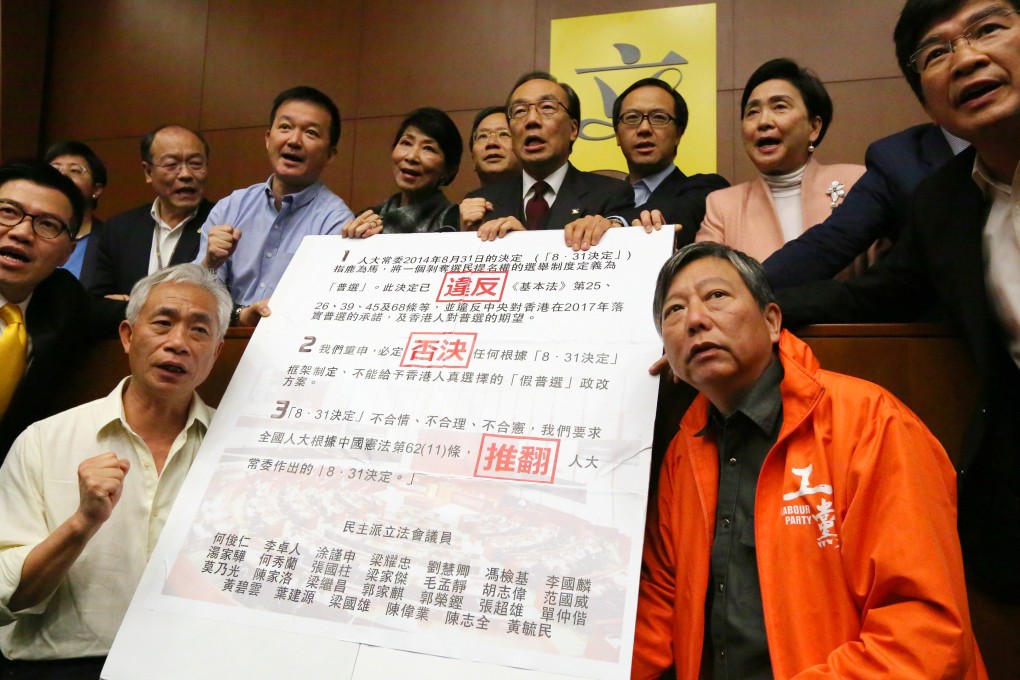Opinion | On political reform, Hong Kong people's views of what is acceptable should count more than democrats'
Frank Ching says officials should pay more attention to winning over the people with their political reform package, rather than pan-democrats

The second round of public consultation has now ended. The question is, will it influence the way the government drafts the political reform package to be presented to the Legislative Council?
Indications are that the government hasn't been paying much attention to the five million people who will potentially benefit when universal suffrage is introduced. Instead, officials have zeroed in on the handful of pan-democratic legislators whose votes are needed for a two-thirds majority.
More than once, senior officials have shown a lack of interest in ideas being promoted because, they say, such proposals won't sway the legislators they are wooing. Even before the consultation period was over, Chief Secretary Carrie Lam Cheng Yuet-ngor said the government was unlikely to include a "none-of-the-above" voting option in its package.
This was not because it was considered inconsistent with the Basic Law or the August 31 decision by the National People's Congress Standing Committee. Indeed, Secretary for Justice Rimsky Yuen Kwok-keung said the proposal could be considered. It was dismissed out of hand because, according to Lam, the pan-democrats were only lukewarm to the idea. "I don't think it would make the pan-democrats change their minds," she was quoted as saying. So, a few pan-democratic legislators count for more than the public at large.
The whole idea behind a universal suffrage election is to produce a chief executive with legitimacy. If a candidate is opposed - or not actively supported - by a majority, then it would be difficult to argue that he or she has credibility. The argument that the blank-vote idea undermines the power of the nominating committee doesn't stand up to scrutiny. What it would do is show whether the committee has used its power wisely.
The job of the committee is to nominate, not elect. That right lies in the hands of the voters, and nothing in the Basic Law says voters have to elect anyone chosen by the nominating committee. Of course, if the committee does its job properly, its decisions will reflect public opinion and the embarrassing problem of public rejection of all candidates will not exist.

